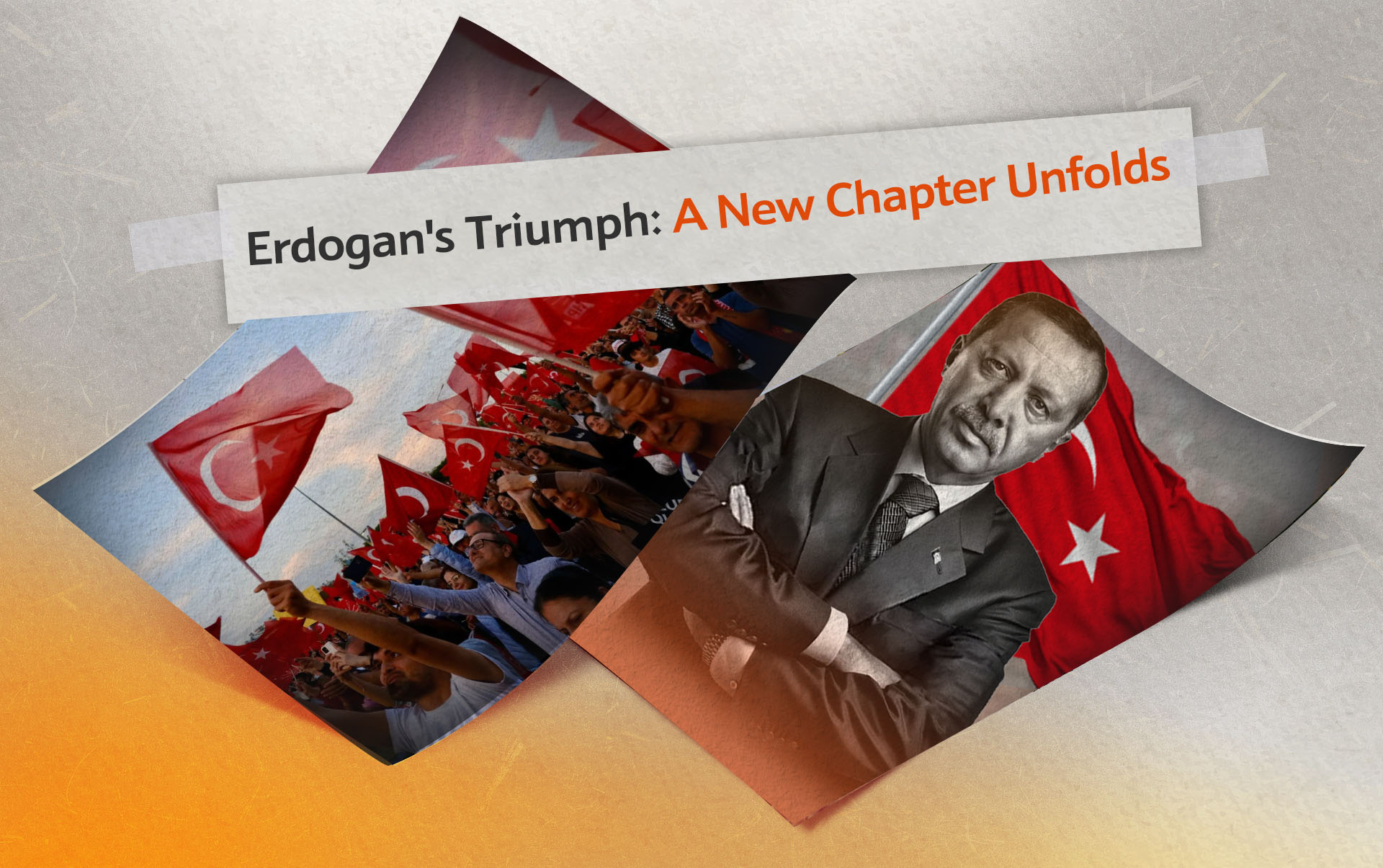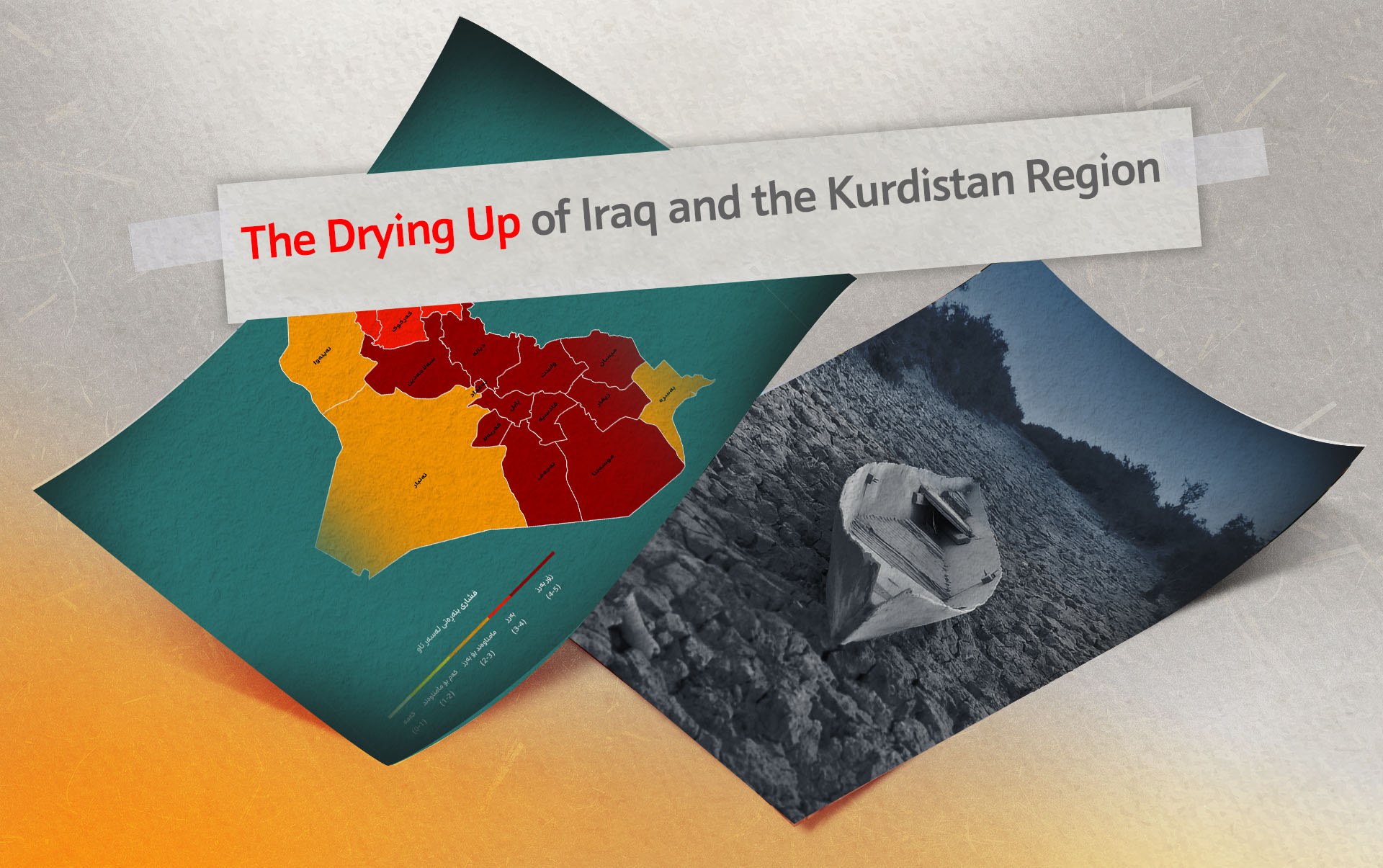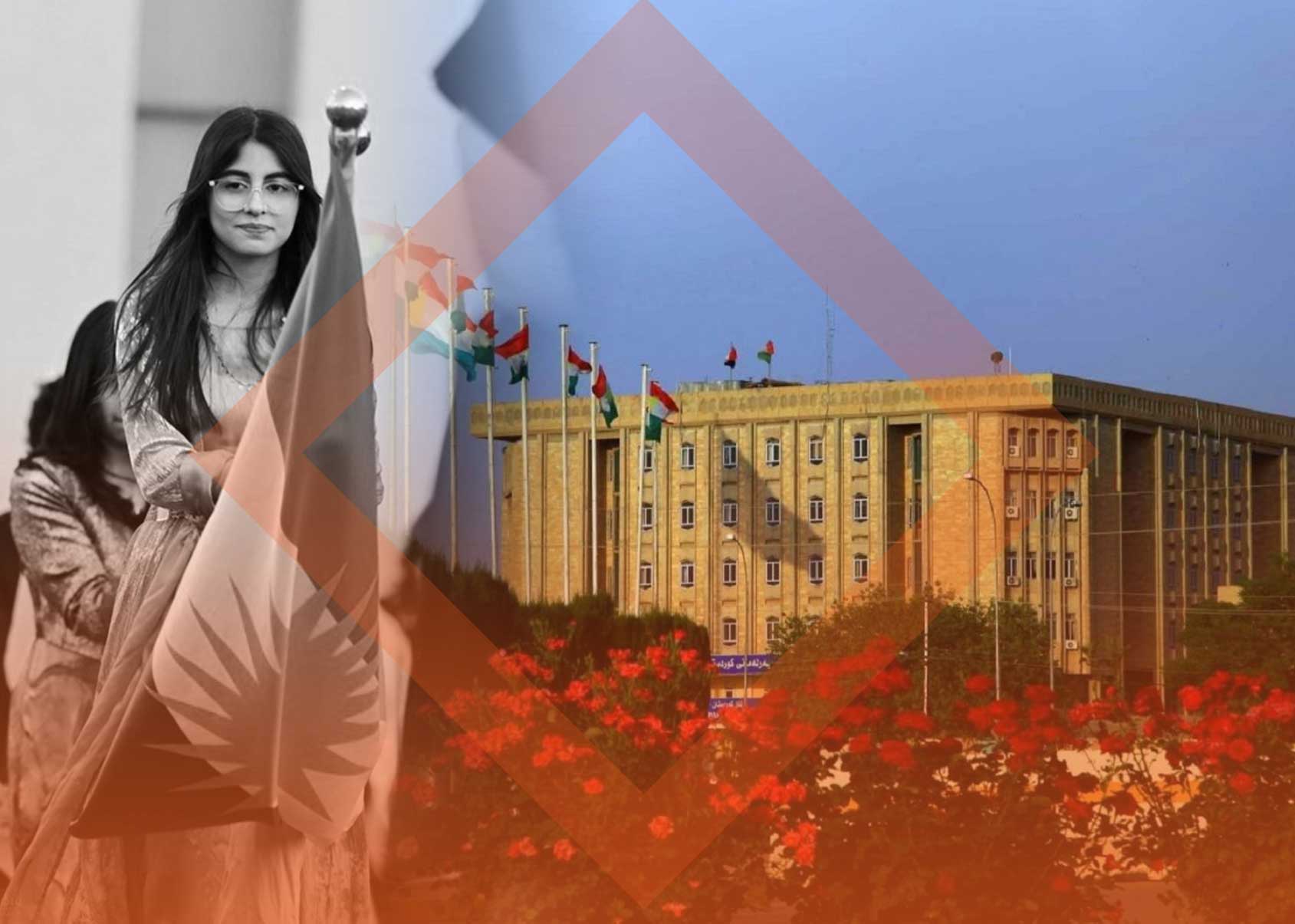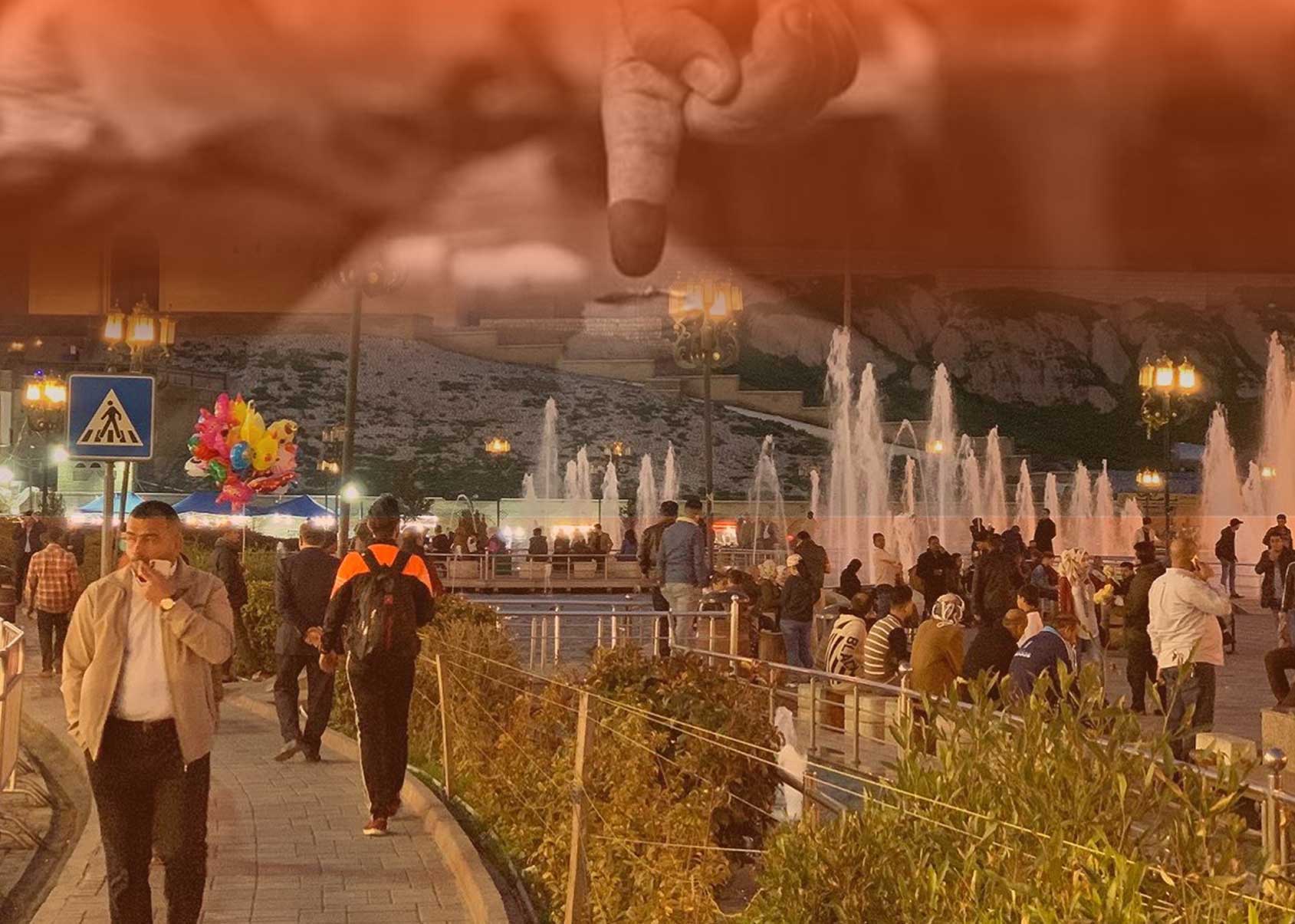Turkey's vibrant regional influence is undeniable, with domestic shifts often triggering ripple effects beyond its borders. While recent elections may not have caused major upheavals, they did trigger key changes at various levels that are likely to mold Turkey's future foreign policy. This understanding grounds our analysis of the concept that domestic politics is the crucible of foreign policy and vice versa. Let's decode the recent Turkish elections from this perspective.
From the electoral landscape, two themes distinctly emerged: the profound polarization across different strata of Turkish society and the ascendance of ultra-nationalism. These factors were not just revealed by the elections but were, in some ways, sculpted by them.
The Mirage and the Reality
Turkey's elections captured global attention, sparking a blend of expectation and reality fueled by public opinion polls. Most people, both within and outside Turkey, anticipated Erdogan's downfall. This assumption rested on the belief that most Turkish citizens were grappling with severe economic strains, and typically, voter concerns center around their economic well-being. However, this prognosis did not materialize. Erdogan's parliamentary success and subsequent victory in the second round of the presidential elections paved the way for a transformed political and psychological landscape, holding sway until Erdogan's second-round victory was confirmed.
Our exploration addresses two core questions: What led to Erdogan's victory, and what implications does this triumph hold for the region and the world? Let's start by dissecting the reasons behind Erdogan's victory.
Frequently, economy is held up as a major influence on the Turkish election results. To flesh this out, we recall Suleiman Demirel's aphorism that "a kitchen dish can topple the government."[1] This resonates with Bill Clinton's 1992 election campaign catchphrase, "It's the economy, stupid," coined by Clinton's advisor, James Carville[2]. But was the economy truly a pivotal factor in this case?
To unpack this, we need a nuanced look at the election outcomes. First, let's look at some intriguing data points:
- Most large cities did not vote for the AKP. The economic crisis has hit city dwellers harder than those in suburban or small-town areas. This suggests that the economy did have an impact, but it was uneven, given the unequal nature of the Turkish economy, with sharp disparities between urban and rural areas.
- The housing sector, for instance, faces a major crisis in large cities due to their appeal to foreign homebuyers in Turkey and the high influx of rural migrants.
Importantly, the economic interpretation should not be boxed within pure economic principles. A comprehensive understanding of the economic scenario requires insight into the country's culture, historical memory, and past events. As put forth by Daron Acimoglu, the evolution of the Turkish economy is closely intertwined with the development of Turkish political institutions[3].
In recent years, discussions around urban and suburban economics have broadened to encompass a variety of disciplines, including economics, politics, and sociology. One explanatory theory comes from Andrés Rodríguez-Pose who is a Spanish researcher at LSE University in London, who coined the term 'revenge of uncared places.' His thesis suggests that if we examine US elections, the Brexit referendum, or European right-wing voters, we find that most votes come from places marginalized by the global economy[4].
Although this theory isn't directly applicable to the Turkish context, it can provide a useful frame of reference for studying Turkey's specific situation. A significant portion of AKP voters see themselves as having been overlooked or marginalized in recent Turkish history. They attribute their integration into the economic, political, and social spheres to the rule of AK Party.
This historical fact leads us to infer that despite the economic hardships endured by Erdogan's voters they believe the situation could worsen under different leadership. This perspective is magnified by the fact that over the past two decades the government has not sought to dissociate economic growth from the incumbent political elite. Consequently, the past 20 years of growth which spans more than a decade have positioned Turkey amongst the world's top 20 economies. Supporters of the AK Party believe their party is responsible for this achievement. The deep societal polarization also contributes to this perception. In Turkey, polarization has escalated to the point of being akin to racism. Secular Turks in major cities tend to view others as lacking modern attributes.
Despite this, Turkey finds itself in a challenging situation marked by stark polarization. This polarization has brought the two opposing factions closer, inducing mutual fear. Therefore, any change is perceived as a threat to security and stability particularly since no other political entity can compete independently and the history of coalition governments in Turkey has been fraught with instability.
Turkish researcher Asli Aydintasbas remarked in The Washington Post: "And yet 25 million Turkish citizens across the nation had the courage to vote for Kilicdaroglu’s opposition platform, despite incessant state propaganda, sectarian provocations and election-day irregularities. That number — 25 million — is greater than the population of most European countries and is a testament to Turkish society’s enduring democratic resilience."[5] This subtly suggests that those who voted for Erdogan share similar characteristics. Notably, Asli didn't mention the Kurdish voters of the Republican People's Party, numbering in the millions. This oversight has led many to view the overall Turkish elections as a post-truth scenario[6].
This complicated backdrop of modern-day Turkey compels us to examine reality as it is rather than imposing a universal logic. Yes, the economy has had an impact, but the majority of those suffering economically in the big cities vote for the AKP's rivals. In contrast, those outside the major cities vote for Erdogan, believing he was instrumental in bolstering the economy and, if in crisis now, Erdogan can rectify it. These people dismiss intricate economic explanations about inflation, interest rates, and economic theory. They generally believe that the economy was once strong but fell into a crisis due to foreign intervention. They trust Erdogan, not Kemal Kilicdaroglu, to improve it.
Upon examining Turkey's voting map, it is evident that the western cities housing the majority of the country's population voted against Erdogan. We should acknowledge that the margin separating the two sides is minimal. While the city benefits the most from a globalized economy it suffers the most during crises. However, this division has more aspects beyond the economy such as the issue of polarization in Turkey. One factor contributing to Erdogan's victory is his exploitation of this polarization.
The city-rural divide provides substantial insight into this polarization. Polarization becomes particularly concerning when one side can secure a marginal majority over the other. In this scenario both sides resort to establishing a semi-hostile relationship while maintaining a balance in the broader scheme.
The complexities of Turkish polarization go beyond the Islamic versus secular divide or the urban versus non-urban contrast. This polarization manifests between the Kurds and ultra-nationalists, across differing economic statuses, amongst bearers of varied social political and moral values and between geographically and culturally distinct regions[7]. Unfortunately, politics exacerbates these differences. Initially Erdogan sought to unite Islamists and Kurds to counteract this polarization but struggled to separate Turkish political Islam from Turkish nationalism. Over the past decade, he has focused on the intersection of national and Islamic identities investing considerable effort and achieving significant success. Events from the reopening of Hagia Sophia to the increase in Turkish expansionism can be read through this lens. Suleyman Soylu exemplifies this fusion of Islam and nationalism[8].
The interplay of economics and polarization suggests that Erdogan must continue his trajectory especially since campaigns for the forthcoming local elections have already begun.
What does this victory signify?
Global media outlets notably The Economist[9] and Der Spiegel[10] interpreted Erdogan's defeat as significant because it symbolized to the world that an autocrat could be democratically ousted. This signifies that democracy, even in crisis, can self-correct but in this case, it was a far cry from the hopes and expectations[11].
This suggests the status quo from previous years will persist. But what will continue?
In his victory speech, Erdogan proclaimed the dawn of the 'Turkish Century.' This concept similar to the 'American Century' indicates that Turkey will become a world power in the coming century. This grandiose claim provides insights into the future trajectory of Turkish policy both regionally and globally.
In the past, the campaign phase was distinct from the governing phase, with politicians using more serious rhetoric during the campaign. However, Aaron Stein's War on Rocks suggests that this no longer applies to Turkey[12]. As a result, no major changes are expected after the election. The swift congratulations from Western leaders suggest they're eager to avoid past mistakes (2018)[13]. So, if campaign propaganda reflects foreign policy, what does this campaign reveal?
Lausanism vs. National Charter
The campaigns of Kemal Kilicdaroglu and the CHP, though they didn't directly invoke them during the elections, highlighted Turkey's domestic issues. Kilicdaroglu's position echoes Mustafa Kemal Atatürk's philosophy: peace at home, peace in the world. In contrast, Erdogan's campaign focused on the opening of military factories, nuclear bases, drones, and spacecraft. Erdogan's goal was to depict Turkey as a powerful regional and global player capable of producing military goods.
Kilicdaroglu's emphasis on domestic and economic matters suggests an inward focus geopolitically, influencing both internal and external affairs. His aim is to extend Turkey's global influence to address local issues. On a regional level, this means recognizing the Lausanne boundaries and functioning as a nation-state rather than a regional power.
The difference between these two perspectives is clear. If a significant part of the Turkish opposition aligns with the Lausanne perspective and adheres to Atatürk's philosophy of domestic and global peace, Erdogan and his allies hold a different viewpoint.
Erdogan and his nationalist allies imagine a Turkey defined by the National Pact, suggesting territorial expansion beyond the Lausanne boundaries. This viewpoint has been tied to the Kurdish issue since Atatürk's era.
The rise of nationalism and Islam in Turkey is leading the country in a direction distinct from but not opposed to the West. Turkey's aim is to implement a bipolar independence policy. This new vision is likely to be remembered, as it is in line with Atatürk's balanced foreign policy. A significant sign of this viewpoint is evident in American think tanks, particularly figures like George Friedman from the Center for Geopolitical Thought and Peter Zane[14]. People like Friedman, the founder of Stratfor and a significant figure in future geopolitics, alleged by WikiLeaks to have ties to the CIA, are close advisers to Erdogan, urging him to become a regional power.
Turkey and the World
National identity and the National Pact shape Turkey's domestic and international actions. Turkey's interaction with the world becomes a key aspect of its foreign policy directly tied to domestic and regional dimensions. Erdogan showed his readiness for dialogue with Biden in a CNN interview. Despite this seeming like a potential election statement, Turkey cannot ignore countries like Russia and Qatar under current circumstances.
Observers expect Turkey and Qatar to move closer. After the election, Erdogan announced plans to build homes for Syrian refugees using Qatari funds and to send them back. This increasing alignment, part of a regional bloc, could put the Kurds at various disadvantages[15].
Given the seriousness of these claims, Turkey's relationship with the West, particularly the United States, is unlikely to change much due to existing fundamental and political hurdles. Erdogan's main economic focus is predicted to shift towards the Gulf and China rather than the West. It's still essential to remember that Europe is Turkey's biggest economic partner.
Conclusion
Shifting Landscape in Turkish Politics: "The elections may not have brought significant changes, but Turkey's domestic and foreign politics are changing. The first shift emerged internally with the rise of a radical nationalist faction through different personalities, groups, and parties. Their representation in parliament and influence on both the governing and opposition fronts has grown. This policy has always been part of Turkish politics, but its influence has fluctuated, and now it seems set to reenter Turkish foreign policy.
Turkish society is experiencing increasing fragmentation. The rise in polarization, coupled with the emergence of ultra-nationalists supposedly forming a group called the Nationalists, will likely deepen divisions between Turkish Kurds, the opposition, and the government.
This domestic situation will affect Turkey's governmental policies both domestically and internationally. Signs suggest that regional politics will continue with even greater intensity. Nevertheless, some argue against an aggressive policy towards the Kurds given the imminent elections and the evolving situation in western Kurdistan linked to Syria.
Lastly, indications suggest that Erdogan, a pragmatist skilled at changing his stance, rhetoric, and actions to ensure his survival, will continue his previous policies but with a stronger focus on the economy.
References
[1] https://derinkocer.substack.com/p/economy-was-not-enough-stupid
[2] https://politicaldictionary.com/words/its-the-economy-stupid
[3] https://economics.mit.edu/sites/default/files/publications/High-Quality%20Versus%20Low-Quality%20Growth%20in%20Turkey%20-.pdf
[4] https://eprints.lse.ac.uk/85888/1/Rodriguez-Pose_Revenge%20of%20Places.pdf
[5] https://www.washingtonpost.com/opinions/2023/05/29/turkey-election-results-erdogan-challenge/
[6] https://arabcenterdc.org/resource/turkish-elections-in-a-post-truth-political-landscape/
[7] https://www.gmfus.org/news/importance-mitigating-polarization-turkey
[8] https://newlinesmag.com/essays/a-fetih-accompli-how-erdogan-married-religion-and-nationalism
[9] https://www.economist.com/europe/2023/05/28/recep-tayyip-erdogan-is-re-elected-as-turkeys-president
[10] https://www.spiegel.de/international/world/turkey-at-a-crossroads-erdogan-faces-a-real-risk-of-losing-election-a-28e3bf53-6aef-4023-87c4-b4c4ead8427a
[11] https://foreignpolicy.com/2023/05/17/turkey-election-results-experts-wrong
[12] https://warontherocks.com/2023/05/a-pirouette-not-a-pivot/?__s=8oe0q2nknni8j07zsfce
[13] https://www.france24.com/en/europe/20230529-from-biden-to-putin-world-leaders-congratulate-erdogan-on-election-win
[14] https://www.youtube.com/watch?v=ZLClIjunsvc
[15] https://www.aa.com.tr/en/middle-east/turkiye-creating-infrastructure-for-voluntary-return-of-syrian-refugees-president-erdogan/2906013






